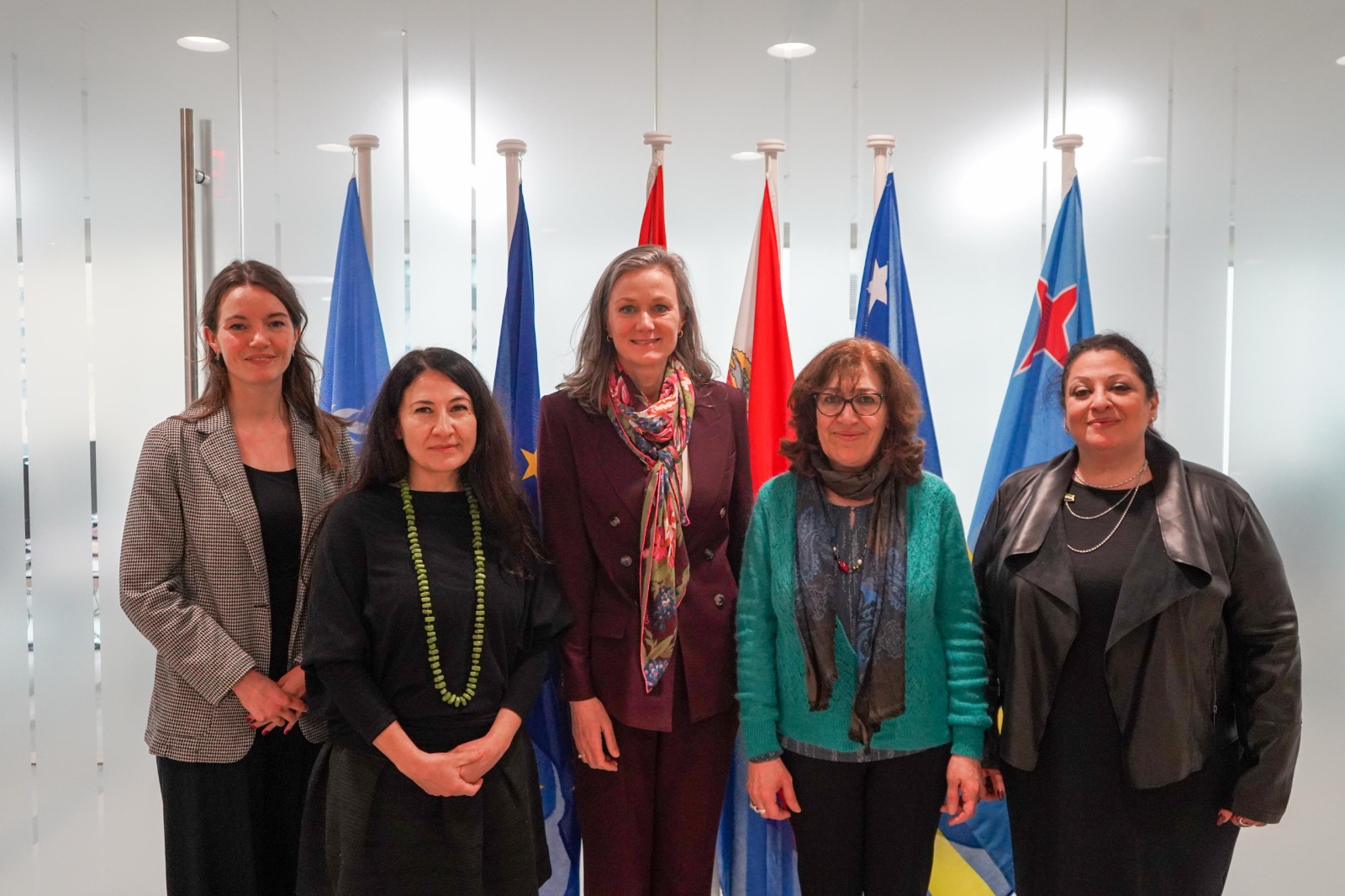Syrian Women’s Political Movement Participation in the Commission on the Status of Women (CSW69)
- updated: March 28, 2025
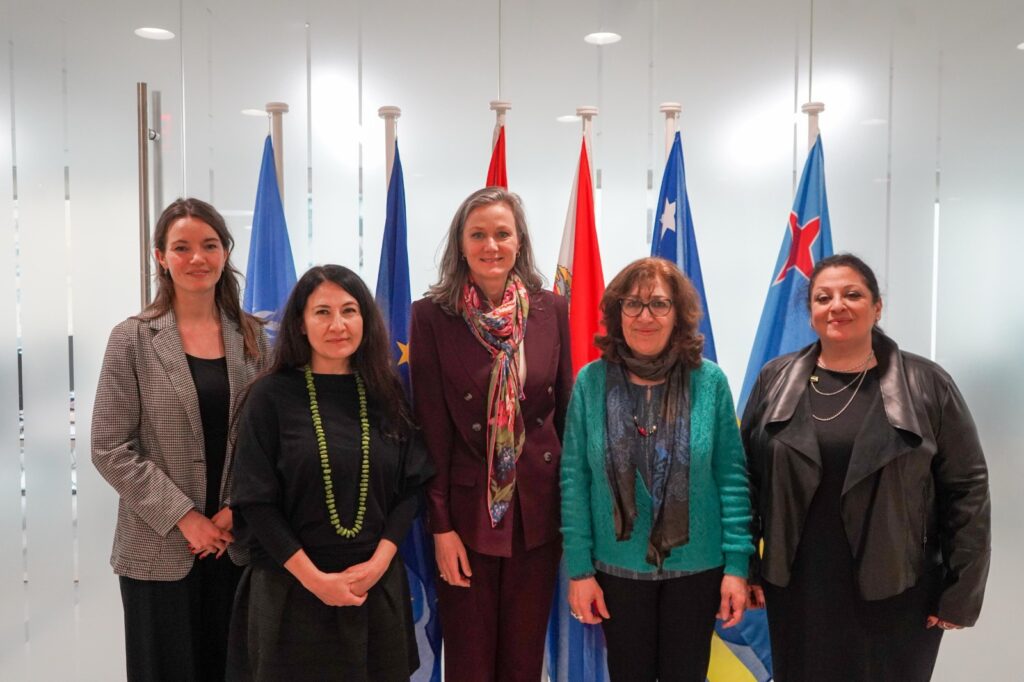
The Syrian Women’s Political Movement (SWPM) held a series of meetings with several international officials and diplomatic bodies as part of its participation in the 69th session of the United Nations Commission on the Status of Women (CSW69), held in New York between March 17 and 21, 2025.
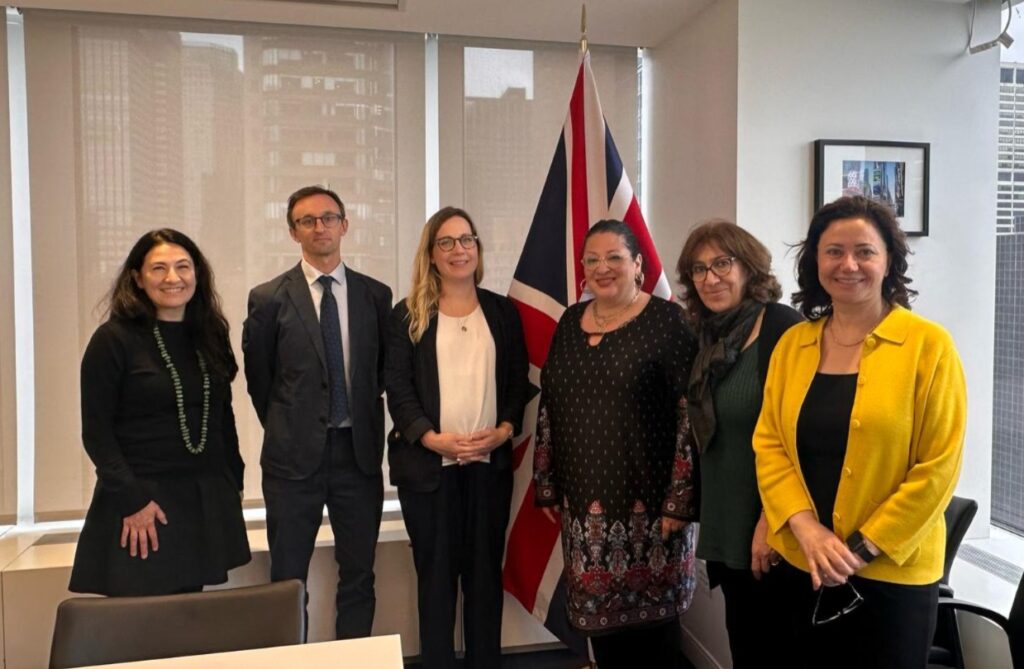
SWPM was represented in these meetings by Secretariat members Mariam Jalabi and Wejdan Nassif, along with General Assembly members Sana Mustafa, Shadia Martini, Muzna Dureid, and Executive Director Alma Salem.
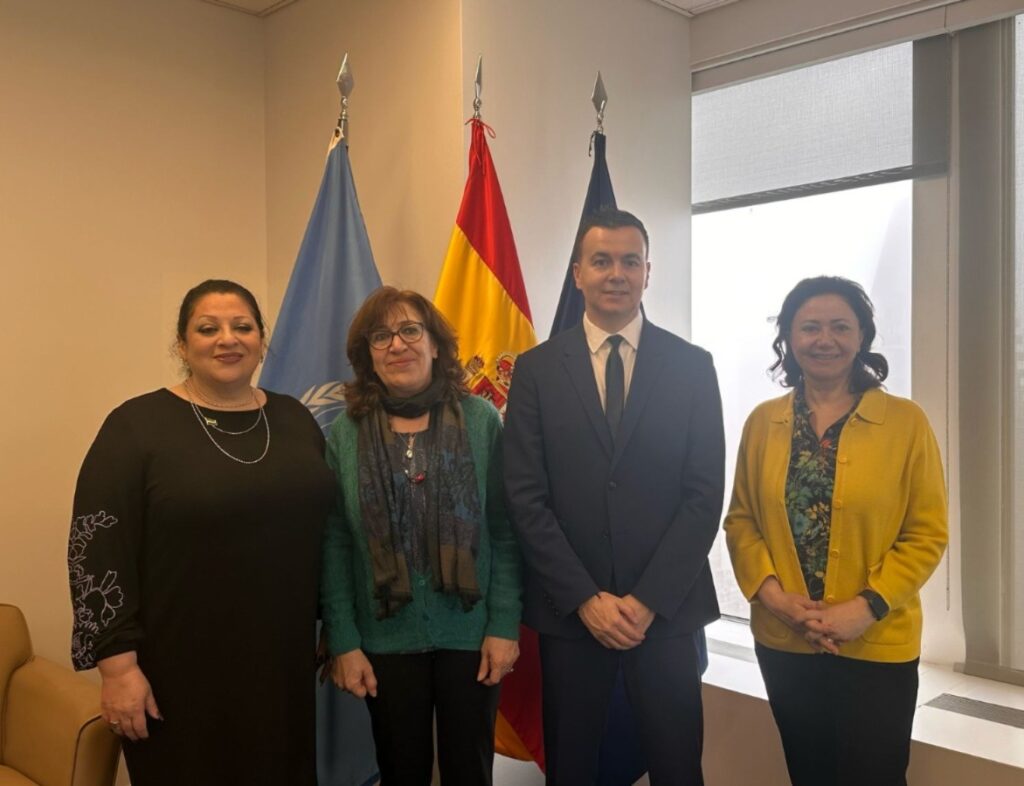
These meetings included—according to chronological order—encounters with UN representatives from the following countries: the United Kingdom, Turkey, France, Syria, the United Nations Department of Political and Peacebuilding Affairs (UNDPPA), Qatar, Spain, Kuwait, the United States, Saudi Arabia, the Netherlands, and the UN Deputy Secretary-General for Political Affairs Khaled Khairi.
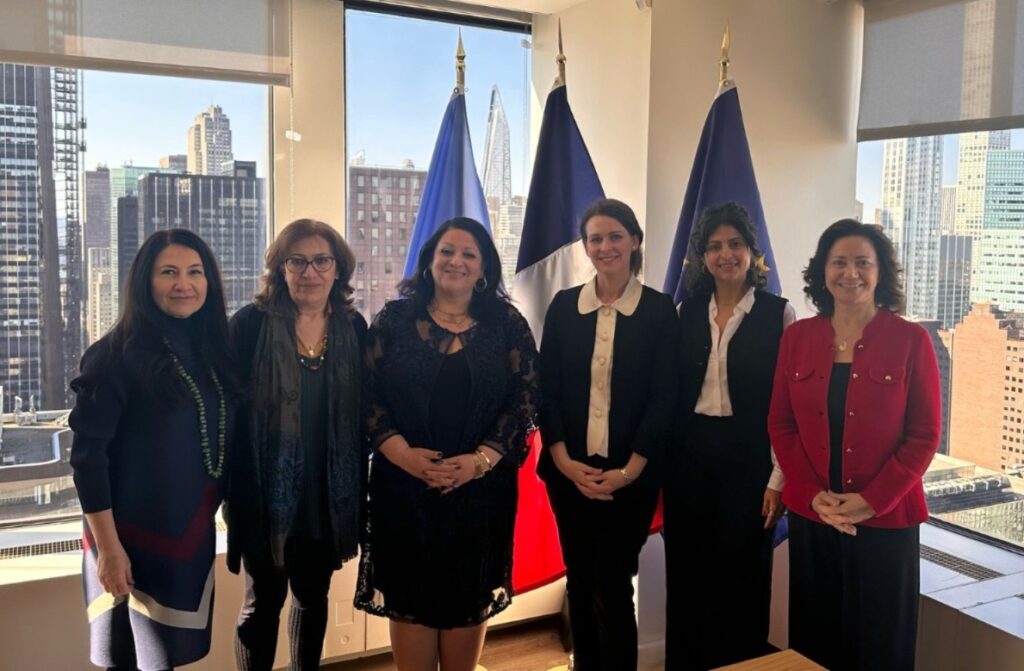
SWPM’s participation in CSW69 is part of its ongoing efforts to achieve justice, amplify women’s voices in international forums, and strengthen joint action to realize a free and democratic state that guarantees rights and justice for all.
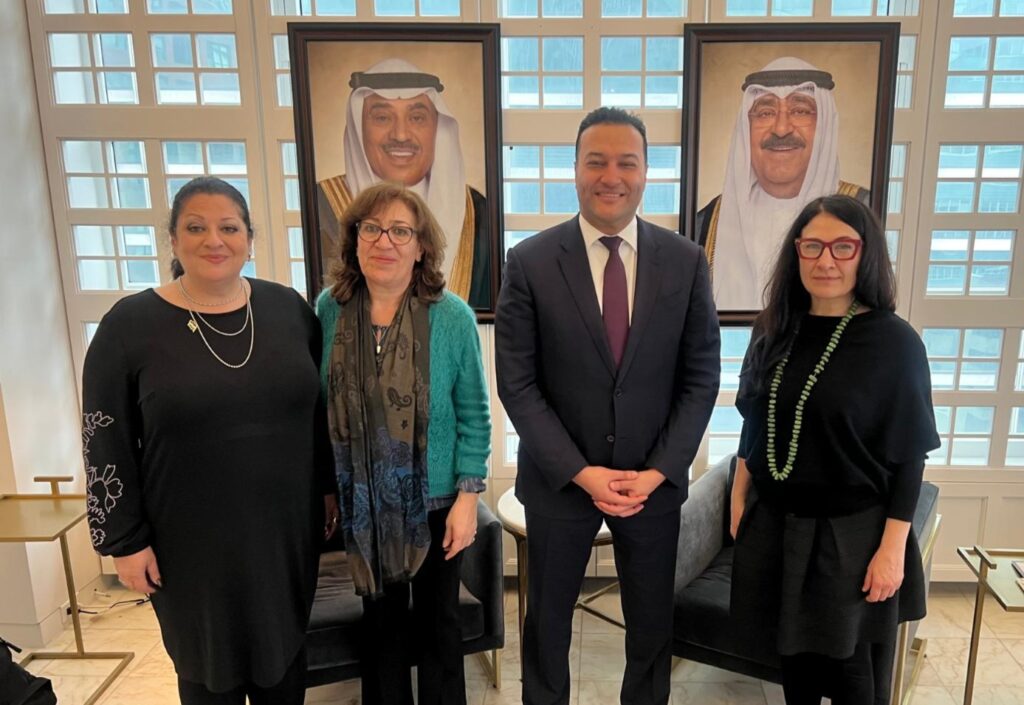
The meetings revolved around several key issues related to the situation in Syria. SWPM emphasized the need for collective efforts to ensure the success of the transitional phase, the importance of inclusivity as a safeguard for civil peace, and the urgent need to initiate transitional justice and uncover the fate of the disappeared to achieve sustainable peace in Syria. The movement also stressed the importance of lifting international sanctions, the necessity of reconstruction, and supporting stability to ensure the return of refugees. Additionally, the meetings highlighted the importance of inclusive political participation, beyond limited representation of specific parties.
One of the central issues SWPM focused on was the necessity of women’s representation in the transitional phase, the constitution-drafting process, and at all levels of decision-making. They also emphasized the need to support women’s and feminist initiatives and promote women’s participation in civil peace efforts and the reconstruction of the country.
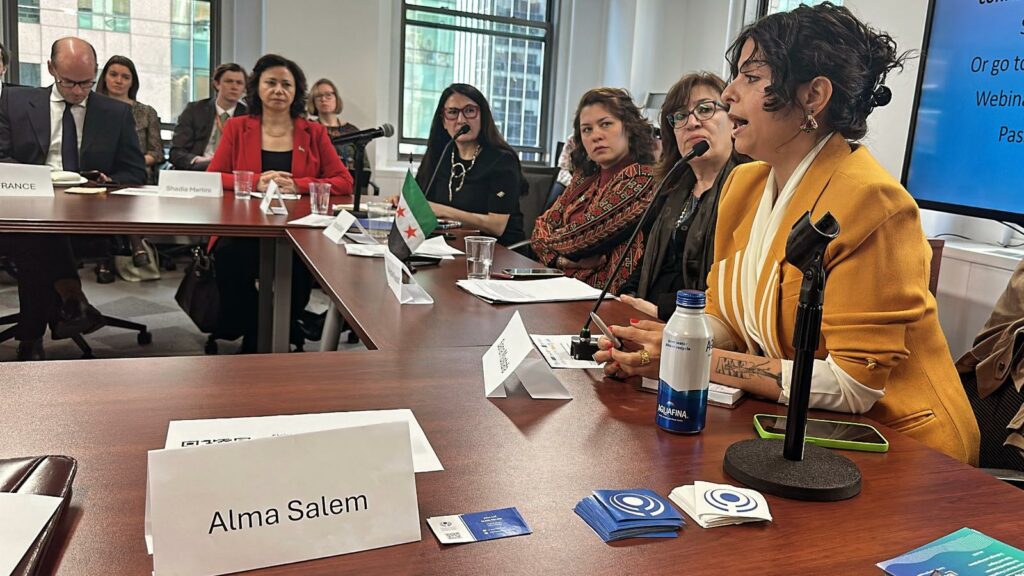
On the sidelines of CSW69, and under the sponsorship of the missions of the European Union, Spain, Ireland, Germany, Belgium, Denmark, France, Canada, Luxembourg, the United Kingdom, Norway, and UN Women, SWPM organized a panel discussion titled “Inclusive Transition: Imagining the Future of Syria”, held on March 19, 2025, at the UN Women headquarters in New York. Speakers included SWPM members Sana Mustafa, Muznah Dureid, and Wijdan Nassif, with Mariam Jalabi moderating the session.
The event had broad participation from UN member state representatives, the diplomatic community, and international NGOs. Participants discussed practical steps to ensure a comprehensive and sustainable political transition in Syria that incorporates justice and social cohesion.
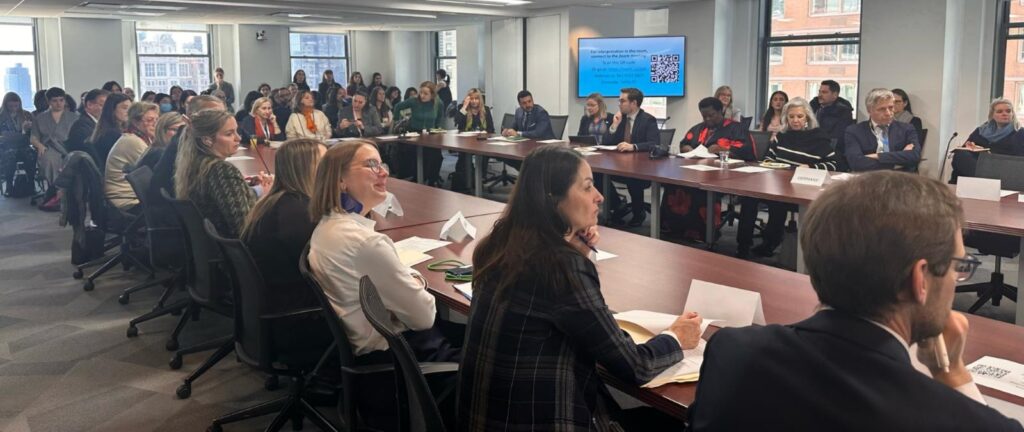
The event aimed to move forward on concrete steps toward an inclusive transition while highlighting key priorities to secure lasting peace in Syria:
- Participatory political transition: Supporting a Syrian-led political process that ensures representation of all societal groups in shaping the country’s future.
- Truth, justice, and reconciliation during the transitional period: Developing a gender-sensitive transitional mechanism that promotes truth as a foundation for justice, determines the fate and whereabouts of all missing persons, and fosters reconciliation to address past injustices and mend social divisions.
- Reconstruction, economic development, and financing: Calling for the lifting of economic sanctions and promoting a just future for all by rebuilding through financial systems that prioritize the interests of women and marginalized groups.
- Social cohesion and inclusivity: Strengthening social bonds across divided communities through mutual trust and understanding, while empowering women and marginalized groups to play active roles in the transition process.
- Regional and international cooperation: Reaffirming Syria’s unity and sovereignty, discussing the roles of neighboring countries and international actors in supporting or obstructing the transition, and emphasizing the importance of regional cooperation to secure long-term peace and stability.
The event received strong engagement from attendees, reflecting the vital role Syrian women are playing in leading change and the continued need to ensure a peaceful and democratic future for Syria.
Event link here
